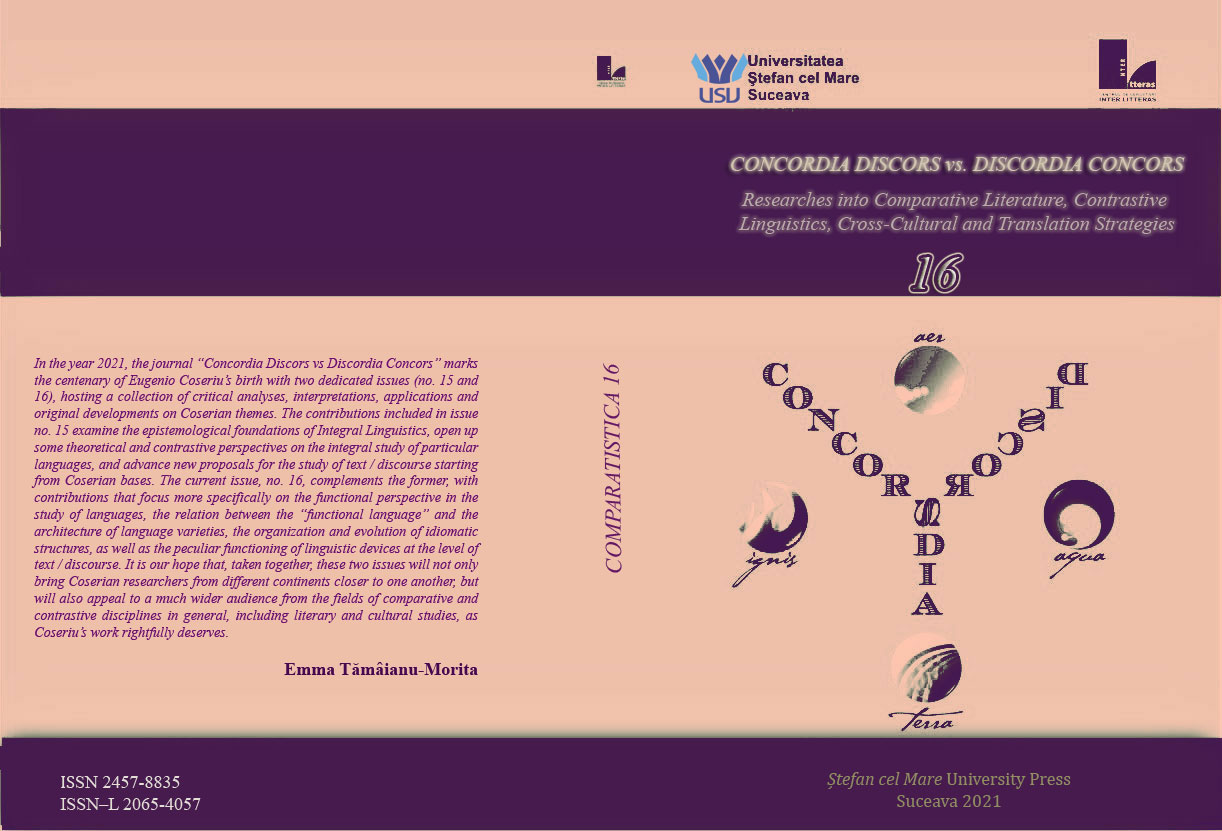Particularidades gramaticales del portugués brasileño en relación con la norma linguística estándar
Grammatical Features of Brazilian Portuguese in Relation to the Codified Language Norm
Grammatical Features of Brazilian Portuguese in Relation to the Codified Language Norm
Author(s): Dmitry GurevichSubject(s): Language and Literature Studies, Theoretical Linguistics, Applied Linguistics, Morphology, Syntax, Historical Linguistics, Comparative Linguistics
Published by: UNIVERSITATEA »ȘTEFAN CEL MARE« SUCEAVA
Keywords: (Brazilian) Portuguese; language norm; codified norm; language variation;
Summary/Abstract: The Brazilian variant of Portuguese, which shares the grammatical system with other national variants of Portuguese, among which European Portuguese in the first place, has a number of distinctive features that manifest themselves regularly and concern the realization of basic grammatical oppositions. The reason for these features to emerge is to be found in the specific way in which Brazilian society was developing across history and in the sociolinguistic factors underlying the formation of Brazilian Portuguese. The present paper singles out twelve grammatical structures that convey basic categorial meanings (number and person in pronouns and verbs, voice), as well as syntactic structures that show changes in government models, in the form and position of clitics and in certain syntactic patterns of emphasis. These structures deviate from the codified norm but are widely present in different registers of Brazilian Portuguese, both in spoken language and in writing. Their status has been assessed differently by normative-rescriptive grammars of Portuguese, on the one hand, and by descriptive grammars, on the other hand. The wide presence of such deviations means that it is necessary to study how they fit in with the codified norm and, probably, reconsider the criteria for its definition.
- Issue Year: 2021
- Issue No: 16
- Page Range: 132-154
- Page Count: 23
- Language: Spanish

